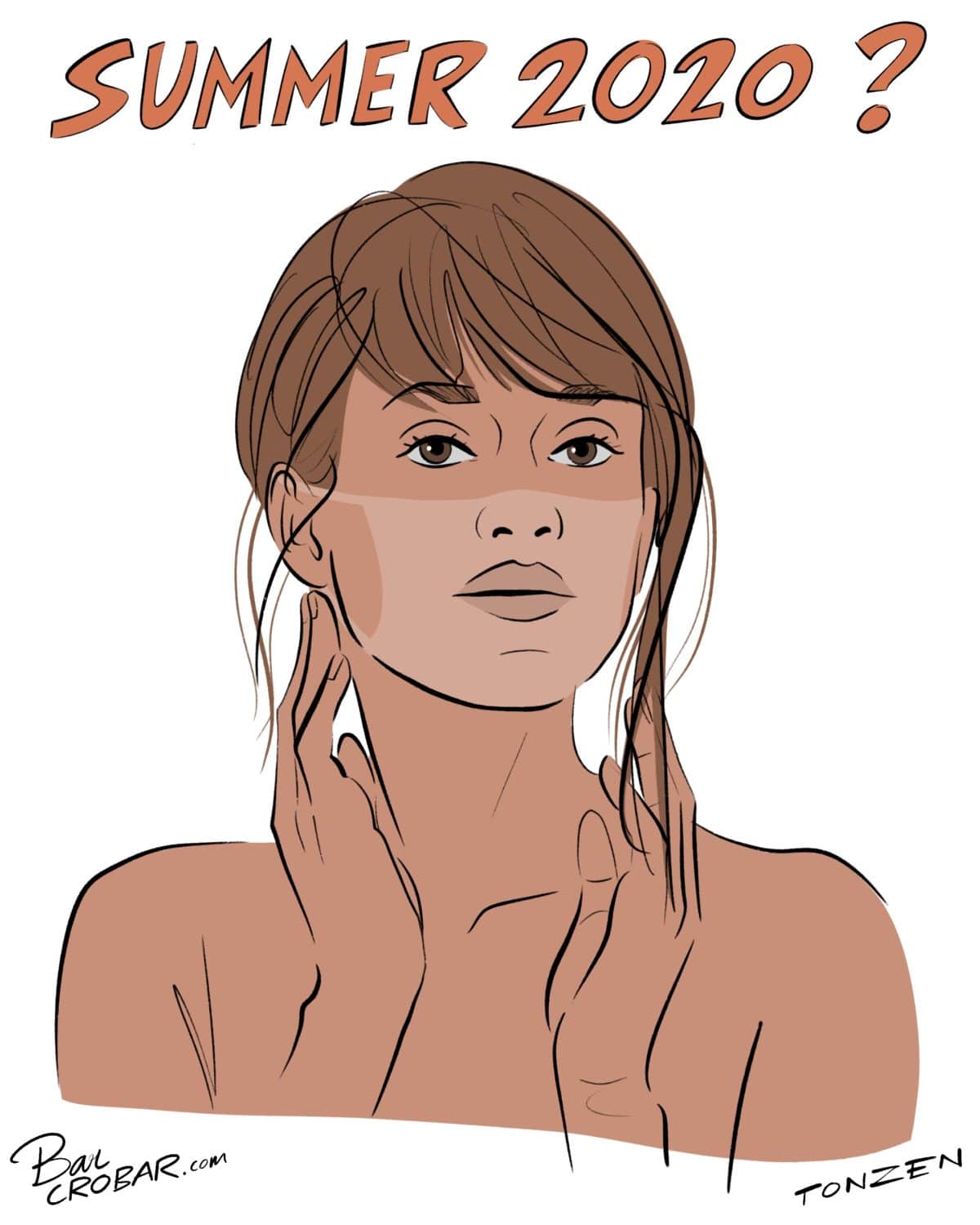The Federal Council intends to resolve the Covid-19 crisis in three stages. Hairdressers, physiotherapists, garden centres and doctors will be authorised to reopen from 27 April. The measures on gatherings will be maintained until 8 June.
"The measures taken have borne fruit, slowing the spread of the epidemic and gradually easing the situation," Swiss President Simonetta Sommaruga told reporters in Bern on Thursday. "The transition is beginning. But it will be slow and gradual, so as not to wipe out the results achieved so far", added Health Minister Alain Berset.
The health of the Swiss population is the Federal Council's top priority. For the time being, the rules in force to combat the coronavirus remain in force, insisted the Health Minister. Gatherings of more than five people are still prohibited. Vulnerable people must continue to stay at home. And teleworking is recommended.
Protection measures will be relaxed from the end of April. Planned to be implemented in three stages, from 27 April, 11 May and 8 June, they can be adjusted depending on how the epidemic develops, according to Alain Berset. "We need to strike a balance between coming out of the economic crisis and the risk of relapsing into a health crisis", said Guy Parmelin, the head of the Swiss economy.
Hairdressers and doctors first
Hairdressers, physiotherapists, garden centres, crèches and other service providers will be the first to be allowed back to work. Hospitals and doctors' surgeries will once again be able to carry out all operations and offer all their services, including those that are not urgent.
These activities involve very little direct contact and do not involve large flows of people," explained Mr Berset. In addition, protection plans are easy to put in place. The cantons will have to monitor their implementation.
From 27 April, food shops selling other goods will be able to reopen their entire sales area. In the opinion of the Fribourg resident, it may be necessary to wear a mask to accompany the gradual reopening.
In addition, people outside the immediate family of the deceased will once again be able to attend the funeral.
Schools from 11 May
From 11 May, the Federal Council plans to reopen compulsory schools. The youngest children do not catch the disease and are poor vectors," said Mr Berset. Other shops (sports and others) and markets will be able to resume their activities.
In a third phase, scheduled to start on 8 June, vocational schools, upper secondary schools and universities should reopen their doors. Mr Berset explained that these students would have to travel a lot more.
On the same date, entertainment and leisure facilities such as museums, libraries, botanical gardens and zoos should reopen. The ban on gatherings will also be relaxed. The government is due to decide on the details of this step on 27 May.
Restaurants and bars in limbo
Many other points remain unresolved. The government does not mention any date for the reopening of restaurants and bars. The catering industry can draw up plans for a gradual opening," said Sommaruga.
It is also impossible to give a deadline for the major events. "Expectations are very high for this summer", admitted Mr Berset, but the Federal Council needs a global vision beforehand.
The transition from one stage to the next will only take place if there is no significant increase in the number of Covid-19 cases.
Resuming transmission monitoring
As soon as the number of new infections drops to around 100 a day, the cantons will start systematically tracing the chains of transmission again. To do this, they plan to step up screening, devise a contact-tracking strategy and develop an application that will make it possible to find out if someone has been in contact with an infected person.
Finally, because of the epidemiological situation, the Federal Council has authorised the canton of Ticino to extend the restrictions in certain sectors of the economy until 26 April.
The Federal Council's measures to combat the spread of the coronavirus and protect particularly vulnerable people are taking effect. The Conference of Cantonal Health Directors (CDS) considers the phased relaxation presented by the Federal Council on Thursday to be viable.
To ensure that medical establishments are not overwhelmed, it will only be possible to exit in measured steps, the CDS said in a press release. This protection is paramount, even if the relaxation must also take into account the economic and social effects.
CDS believes it is important to separate each stage by an interval of at least a fortnight. This is the only way to see the effects of relaxation on the number of new infections. It is just as important to continue observing hygiene measures and distance rules.
source: ats / Lematin.ch


